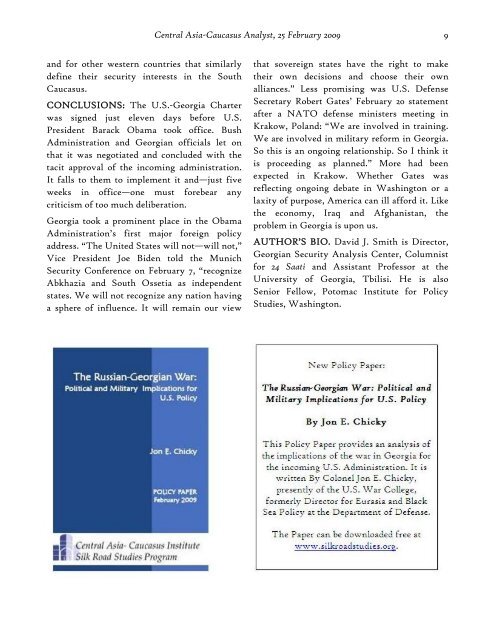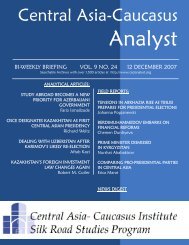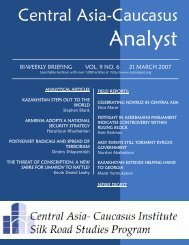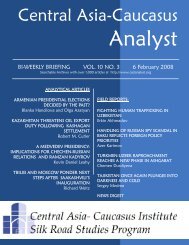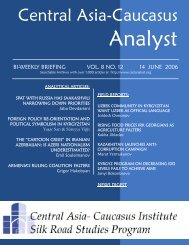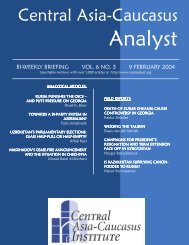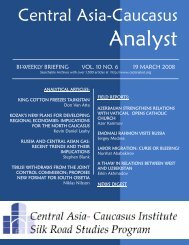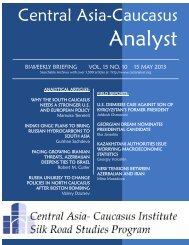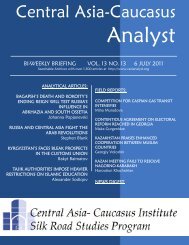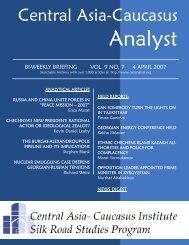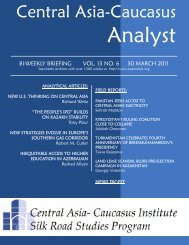Central Asia-Caucasus - The Central Asia-Caucasus Analyst
Central Asia-Caucasus - The Central Asia-Caucasus Analyst
Central Asia-Caucasus - The Central Asia-Caucasus Analyst
You also want an ePaper? Increase the reach of your titles
YUMPU automatically turns print PDFs into web optimized ePapers that Google loves.
<strong>Central</strong> <strong>Asia</strong>-<strong>Caucasus</strong> <strong>Analyst</strong>, 25 February 2009 9<br />
and for other western countries that similarly<br />
define their security interests in the South<br />
<strong>Caucasus</strong>.<br />
CONCLUSIONS: <strong>The</strong> U.S.-Georgia Charter<br />
was signed just eleven days before U.S.<br />
President Barack Obama took office. Bush<br />
Administration and Georgian officials let on<br />
that it was negotiated and concluded with the<br />
tacit approval of the incoming administration.<br />
It falls to them to implement it and—just five<br />
weeks in office—one must forebear any<br />
criticism of too much deliberation.<br />
Georgia took a prominent place in the Obama<br />
Administration’s first major foreign policy<br />
address. “<strong>The</strong> United States will not—will not,”<br />
Vice President Joe Biden told the Munich<br />
Security Conference on February 7, “recognize<br />
Abkhazia and South Ossetia as independent<br />
states. We will not recognize any nation having<br />
a sphere of influence. It will remain our view<br />
that sovereign states have the right to make<br />
their own decisions and choose their own<br />
alliances.” Less promising was U.S. Defense<br />
Secretary Robert Gates’ February 20 statement<br />
after a NATO defense ministers meeting in<br />
Krakow, Poland: “We are involved in training.<br />
We are involved in military reform in Georgia.<br />
So this is an ongoing relationship. So I think it<br />
is proceeding as planned.” More had been<br />
expected in Krakow. Whether Gates was<br />
reflecting ongoing debate in Washington or a<br />
laxity of purpose, America can ill afford it. Like<br />
the economy, Iraq and Afghanistan, the<br />
problem in Georgia is upon us.<br />
AUTHOR’S BIO. David J. Smith is Director,<br />
Georgian Security Analysis Center, Columnist<br />
for 24 Saati and Assistant Professor at the<br />
University of Georgia, Tbilisi. He is also<br />
Senior Fellow, Potomac Institute for Policy<br />
Studies, Washington.


